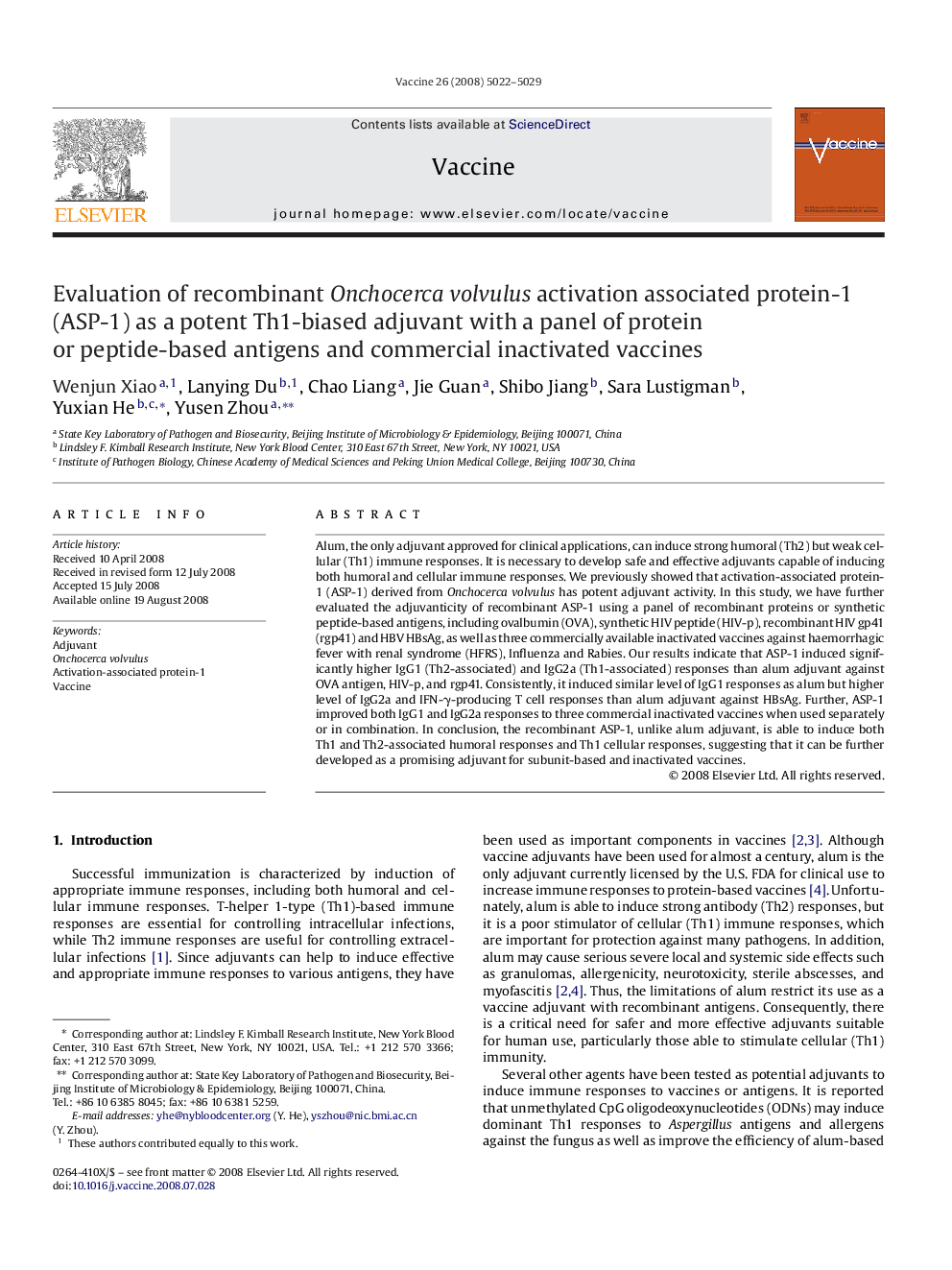| Article ID | Journal | Published Year | Pages | File Type |
|---|---|---|---|---|
| 2406247 | Vaccine | 2008 | 8 Pages |
Alum, the only adjuvant approved for clinical applications, can induce strong humoral (Th2) but weak cellular (Th1) immune responses. It is necessary to develop safe and effective adjuvants capable of inducing both humoral and cellular immune responses. We previously showed that activation-associated protein-1 (ASP-1) derived from Onchocerca volvulus has potent adjuvant activity. In this study, we have further evaluated the adjuvanticity of recombinant ASP-1 using a panel of recombinant proteins or synthetic peptide-based antigens, including ovalbumin (OVA), synthetic HIV peptide (HIV-p), recombinant HIV gp41 (rgp41) and HBV HBsAg, as well as three commercially available inactivated vaccines against haemorrhagic fever with renal syndrome (HFRS), Influenza and Rabies. Our results indicate that ASP-1 induced significantly higher IgG1 (Th2-associated) and IgG2a (Th1-associated) responses than alum adjuvant against OVA antigen, HIV-p, and rgp41. Consistently, it induced similar level of IgG1 responses as alum but higher level of IgG2a and IFN-γ-producing T cell responses than alum adjuvant against HBsAg. Further, ASP-1 improved both IgG1 and IgG2a responses to three commercial inactivated vaccines when used separately or in combination. In conclusion, the recombinant ASP-1, unlike alum adjuvant, is able to induce both Th1 and Th2-associated humoral responses and Th1 cellular responses, suggesting that it can be further developed as a promising adjuvant for subunit-based and inactivated vaccines.
